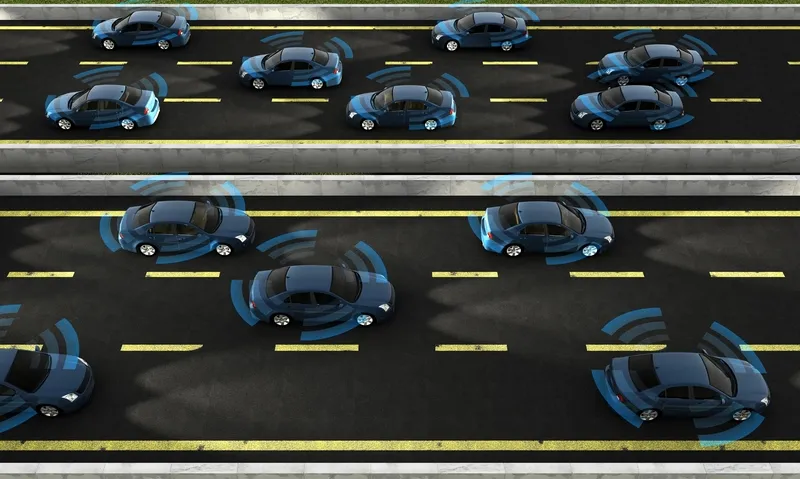The US Department of Transportation is issuing Federal policy for automated vehicles, laying a path for the safe testing and deployment of new auto technologies that have enormous potential for improving safety and mobility for Americans on the road.
“Automated vehicles have the potential to save thousands of lives, driving the single biggest leap in road safety that our country has ever taken,” said US Transportation Secretary Anthony Foxx. “This policy is an unprecedented step by the federal government
September 21, 2016
Read time: 3 mins
The 324 US Department of Transportation is issuing Federal policy for automated vehicles, laying a path for the safe testing and deployment of new auto technologies that have enormous potential for improving safety and mobility for Americans on the road.
“Automated vehicles have the potential to save thousands of lives, driving the single biggest leap in road safety that our country has ever taken,” said US Transportation Secretary Anthony Foxx. “This policy is an unprecedented step by the federal government to harness the benefits of transformative technology by providing a framework for how to do it safely.”
The policy sets a proactive approach to providing safety assurance and facilitating innovation through four key parts. Vehicle performance guidance uses a 15-point Safety Assessment to set clear expectations for manufacturers developing and deploying automated vehicle technologies. Model state policy delineates the Federal and State roles for the regulation of highly automated vehicle technologies as part of an effort to build a consistent national framework of laws to govern self-driving vehicles. Finally, the policy outlines options for the further use of current federal authorities to expedite the safe introduction of highly automated vehicles into the marketplace, as well as discusses new tools and authorities the federal government may need as the technology evolves and is deployed more widely.
“Ninety-four percent of crashes on US roadways are caused by a human choice or error,” said NHTSA Administrator Dr Mark Rosekind. “We are moving forward on the safe deployment of automated technologies because of the enormous promise they hold to address the overwhelming majority of crashes and save lives.”
The primary focus of the policy is on highly automated vehicles, or those in which the vehicle can take full control of the driving task in at least some circumstances. Portions of the policy also apply to lower levels of automation, including some of the driver-assistance systems already being deployed by automakers today.
Simultaneously with this policy, NHTSA is releasing a final enforcement guidance bulletin clarifying how its recall authority will apply to automated vehicle technologies. In particular, it emphasizes that semi-autonomous driving systems that fail to adequately account for the possibility that a distracted or inattentive driver-occupant might fail to retake control of the vehicle in a safety-critical situation may be defined as an unreasonable risk to safety and subject to recall.
“Automated vehicles have the potential to save thousands of lives, driving the single biggest leap in road safety that our country has ever taken,” said US Transportation Secretary Anthony Foxx. “This policy is an unprecedented step by the federal government to harness the benefits of transformative technology by providing a framework for how to do it safely.”
The policy sets a proactive approach to providing safety assurance and facilitating innovation through four key parts. Vehicle performance guidance uses a 15-point Safety Assessment to set clear expectations for manufacturers developing and deploying automated vehicle technologies. Model state policy delineates the Federal and State roles for the regulation of highly automated vehicle technologies as part of an effort to build a consistent national framework of laws to govern self-driving vehicles. Finally, the policy outlines options for the further use of current federal authorities to expedite the safe introduction of highly automated vehicles into the marketplace, as well as discusses new tools and authorities the federal government may need as the technology evolves and is deployed more widely.
“Ninety-four percent of crashes on US roadways are caused by a human choice or error,” said NHTSA Administrator Dr Mark Rosekind. “We are moving forward on the safe deployment of automated technologies because of the enormous promise they hold to address the overwhelming majority of crashes and save lives.”
The primary focus of the policy is on highly automated vehicles, or those in which the vehicle can take full control of the driving task in at least some circumstances. Portions of the policy also apply to lower levels of automation, including some of the driver-assistance systems already being deployed by automakers today.
Simultaneously with this policy, NHTSA is releasing a final enforcement guidance bulletin clarifying how its recall authority will apply to automated vehicle technologies. In particular, it emphasizes that semi-autonomous driving systems that fail to adequately account for the possibility that a distracted or inattentive driver-occupant might fail to retake control of the vehicle in a safety-critical situation may be defined as an unreasonable risk to safety and subject to recall.








